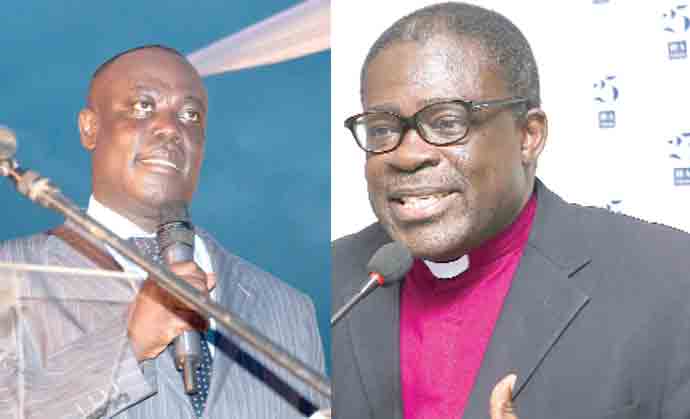
Expand tax net to cover all religious bodies
Two clergymen have challenged the government to, if it desires to go ahead with its plan to tax churches, expand the net to cover all religious bodies and not only churches.
Advertisement
Speaking in separate interviews, the two clergymen, the General Superintendent of the Assemblies of God Church, Rev. Prof. Paul Frimpong-Manso, and the immediate past General Secretary of the Christian Council of Ghana, Rev. Dr Kwabena Opuni-Frimpong, also said the areas where the churches would be taxed should be clearly outlined.
The interview was in response to a statement made by the Commissioner-General of the GRA, Mr Emmanuel Kofi Nti, at a news conference in Accra on Thursday, August 9,
Mr Nti had said the GRA was gathering financial intelligence on preachers who had been demonstrating that they possessed a fleet of ostentatious vehicles and glitzy houses.
Tithes and offertory
Commenting on the intentions of the GRA to go after pastors and make sure they pay taxes, Rev. Prof. Frimpong-Manso referred to Matthew 22:21 in the Holy Bible and said incomes such as tithes and church offerings should be exempted from taxation because they belonged to God, but church workers such as pastors and businesses established by the churches should pay taxes.
“The Bible says in Matthew 22:21 that we should render unto Caesar the things that are Caesar’s and unto God the things that are God’s. That was when Jesus was confronted with the question of taxation.
“Caesar represents the government; the government gives protection to the citizenry, makes the roads, makes the laws, provides hospitals and all the systems that we need and it needs taxes to be able to do these. So, yes, churches should pay taxes.
“On the other hand, we should render unto God that which is God’s. So the church also needs to contribute towards the running and support of church activities,” he said.
Workers and pastors
Rev. Prof. Frimpong-Manso explained that the tithes and offering that people contributed to the church were meant to render unto God what was His and that it was such money that the church used to pay its workers, put up church buildings and cater for the poor and needy in the church.
He, however, said church workers such as pastors, drivers and administrators who received salaries should pay tax, adding: “So every pastor should pay tax, just like any other worker.”
“In addition to that, since the churches run
Dialogue with stakeholders
Rev. Prof. Frimpong-Manso, however, urged the government to embark on a dialogue with religious bodies for the progressive implementation of the tax plan and not just impose taxes on churches.
“The government should meet with all the recognised Christian groups, the media and the good people of Ghana and educate them on the need for them to pay taxes as good citizens of the country and what the taxes will be used for,” he said.
He said the challenge was that after the taxes had been paid, some few corrupt people mismanaged them, a situation which discouraged taxpayers from willingly honouring their tax obligations to the state.
He called on the government to broaden the tax net, such that every Ghanaian would be made to pay tax for national development.
Wrong impression
For his part, Rev. Dr Opuni-Frimpong said the churches paid tax and asked the government to be specific.
“There is the need for the government or the revenue agencies to tell us exactly what they are looking for,” he said.
He was concerned about the wrong impression created among the public that churches had not been paying tax, saying: “It is no secret that churches already pay tax on their revenue-generating businesses.”
“When people are talking about churches and taxes, we must understand what we are talking about. There is the impression that churches are not paying tax, but it depends on what tax you are talking about,” he said.
Rev. Dr Opuni-Frimpong cited, for instance, the fact that the Presbyterian Press had been in existence for more than 100 years and had been bidding for and winning contracts from the government and state agencies and wondered how such revenue-generating businesses would not pay tax.
He suggested to the government to consider tax exemptions for churches that were pursuing pro-poor and other social intervention programmes.
Rev. Dr Opuni-Frimpong explained that some of the mainline churches were operating schools and health facilities in areas where there were no such public facilities.



